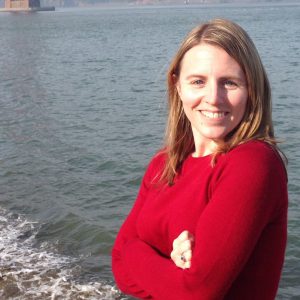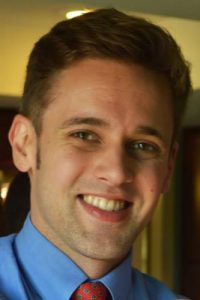Fordham Announces 2016-18 HASTAC Scholars and Campus DH Scholars
The Fordham Digital Humanities Working Group and the Graduate School of Arts and Science are pleased to announce the 2016-18 HASTAC Scholars: Sharon Harris Jeter (PhD candidate, English) and Damien Strecker (PhD candidate, History).
Our HASTAC Scholars represent Fordham’s lively digital humanities community in HASTAC’s distinguished, international online forum. In their roles as HASTAC Scholars at Fordham, they will contribute to the campus digital humanities dialogue by organizing workshops, reading groups, writing blog posts about their work, and other activities. HASTAC Scholars are generously funded by the GSAS.
Sharon Harris Jeter is a Senior Teaching Fellow and PhD Candidate in the English Department. Her dissertation examines the interdependent ways that music moves its hearers affectively, rhetorically, and physically in seventeenth-century English literature, and how music’s power to move thus ultimately forms communities. Sharon holds degrees in music and humanities and has received grants to the Folger Shakespeare Library, Digital Humanities Summer Institute, and for founding Fordham University’s Music and Sound Studies reading group. She has also worked on the editorial staff of 19th-Century Music, published by UC Press, and Opera Quarterly, published by Oxford Journals.

